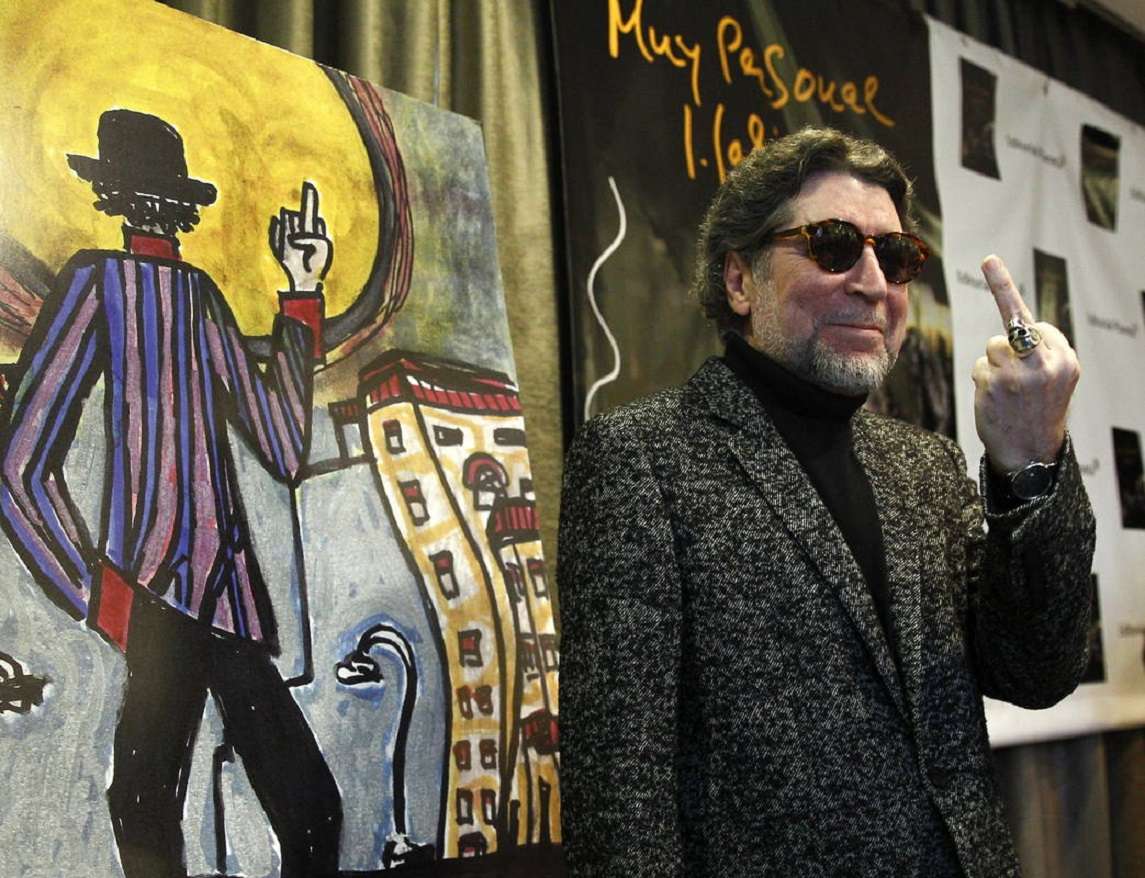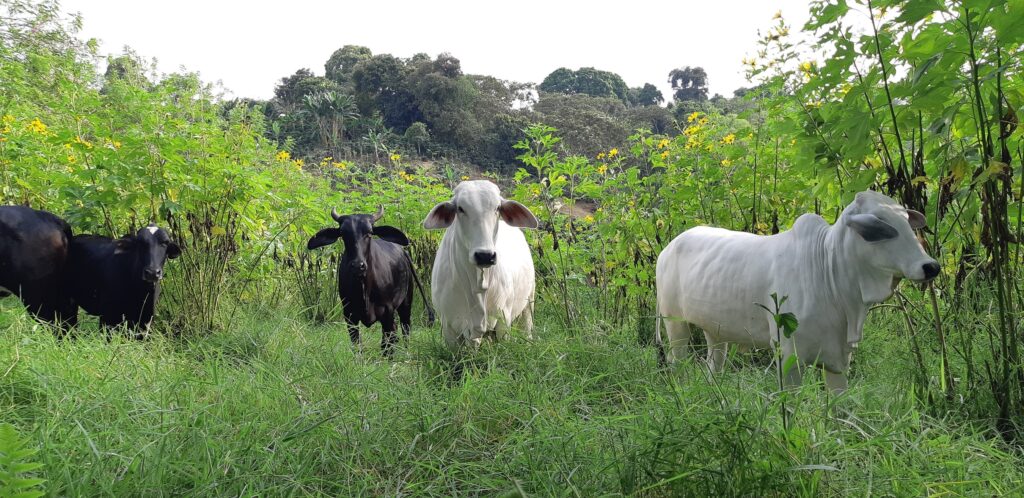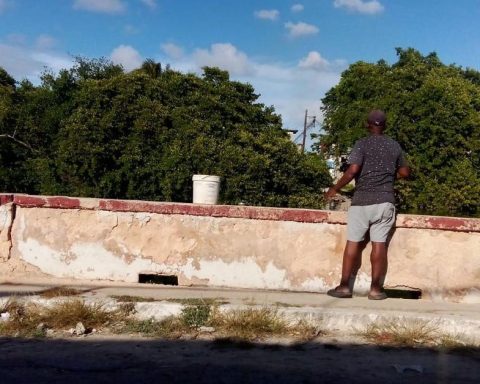the return of the singer-songwriter Joaquin Sabina to Latin America as part of his tour Against all odds has generated ideas loaded with authentic melancholy. Perhaps, without saying it, it is the last presentation of him by these lands that idolize him since he seduced with those works of the late 80s and early 90s.
In fact, when singing the phrase of a certain song, nostalgia could be perceived at the possibility of a truncated desire: …I hope we meet again. “Hopefully”.
Two years ago, Sabina suffered a dangerous accident. A foot took him straight into the void in the middle of that concert with his compatriot and friend Joan Manuel Serrat. The fall endangered the physical capacity required by the artist to return to the stage, this act that represents something like his resurrection. The moment was captured in an exemplary way by Fernando León de Araona in the documentary Feeling it a lotavailable for a few days on Star +.
The thing at the WiZink Center in Madrid, on his 71st birthday, is one of the moments of greatest drama and sadness in the Goya-nominated documentary; even when other dramatic passages are recorded, such as when, shortly before going on stage at Las Ventas, he suffers one of those panic attacks that put him on the verge of giving up and ends up on his knees in the bathroom, gagging that we can hear. Or the end, when he decides to end his attempts to record the song that gives its name to the audiovisual material and the most recent of his records.
It was the first time they recorded the song. Sabina was in the study and shuddered as she entered phrases like: although between the dream and the paper something is lost and with the years more and more, that’s why I fight…
His voice is more broken than usual. He frowns. He complains: “I’m out of tune.” It doesn’t sound like I want. “I’m about to make a serious decision,” he says, sitting on a sofa, a cigarette between his fingers. “There are too many things I want to look good with,” he concludes: “I think I’m deciding what’s best for me and the song.”
After the premiere of Fernando León’s documentary and the Goya nominations, which Sabina and Leyva finally received for this song that is reminiscent —for me, too much— of those on the duo’s previous album, I deny everythingthe artist and his band made these presentations, which in Latin America culminated in Montevideo, but will continue in various cities in Spain, the United Kingdom, France, Mexico and the United States.
The tours are not made by the artists in wagons or uncomfortable ships, but the voracious expectation of the followers continues to be as intense as it would be in the Middle Ages the enthusiasm of the mob at the death of the one who was led to the scaffold. Even for Sabina, a successful artist who travels first class and stays in nice hotels because her resume allows it, this is a sacrifice.
Some, like Serrat, become aware and decide to put an end to a life of achievements and sacrifices. Others, like Pablo Milanés, have the need to face the public until their strength runs out. Sabina seems to be of that lineage, but the body takes its toll.
His voice seems heavier; his diction slower; she dilutes the words with a bitter viscosity. However, despite the drawbacks of nature, pandemic and confinement included; Despite the passage of time, which in his case has endowed his vocal style with a singularity, determined by the impeccable use of the language, the skinny man from Úbeda, at times transformed into a kind of wise and inspired grandfather, again passed the test of his professionalism.
“I don’t see myself with a 70-year-old head or heart,” he says at some point in the documentary. And one looks at his eyes during the concert, enlarged on the huge screens that are on the sides of a place like the Movistar Arena in Buenos Aires; he remains watching and understands why many of his followers believe they will never see him again in Argentina.
The swell of the ocean also contains a depletion. The stone is losing its shape, but the polishing of the wind is gaining. His latest works are repetitive in that idea: the end, old age, the conclusion of a way of being to which he owed his success.
He has been sincere when no one should be totally sincere, because the truth is not something to reassure everyone: we have seen part of his life, we have witnessed how he grabs a pinch of salt to salivate at concerts or how, in the middle of a gathering in which alcohol —and who knows what else— is in abundance, grabs the guitar and, stumbling but without losing step, plunges into the past and returns with masterful verses such as: If I have ever given more than what I have, I have been given many times more than what I give, I have already forgotten where I come from and the place where I am going may not exist.
More restrained, perhaps more familiar, because one of his daughters was in the audience the night I went. That’s how we looked at him again, with such elegance and dignity that he seems ready to maintain the life of before with the usual rhythm. We well know that it is unlikely, although it is also unlikely that he lacks the strength to do it again, as he has done this time. 72 years is not too much.
Before the concert, he had seen on social media that he would open the show with one of his classic songs. I verified it in his fourth presentation at the Movistar Arena, where we arrived with our 7-year-old son because we did not want him to miss the event.
“What did you like the most?” I asked him. “When he came out with his guitar and his pro outfit,” my son told me, who chanted and applauded, and didn’t fall asleep despite two hours.
The first song, the cover letter for the show, was his “When I was younger”, theme from the third album, Judge and jury (1984). Now it has the arrangements of the version recorded for the documentary, at the Teatro Salamanca in Madrid, where it was performed thirty years ago with the orchestra. Vice versa.
In Buenos Aires he was not escorted by Pancho Varona, with whom in recent times he had some disagreement. Traditional musicians played with him, such as Antonio García de Diego, Mara Barros, Josemi Sagaste, Jaime Asúa Abasolo Montenegro Borja, those who identify themselves on the networks as Sabina’s Bandto which Laura Gómez Palma was added this time.
There were other jewels revisited. Some that I remember: “At the edge of the chimney”, “With a withered forehead”, “The most beautiful song in the world”, “It rains on wet”…
No matter how many days one stops listening to him, no matter how long it takes to present his new musical work, his most recent painting, his new poem. Sabina is present; she belongs to our imaginary, to our contemporaneity; to the things that refuse to leave, even though we know that they slowly continue to leave.
















